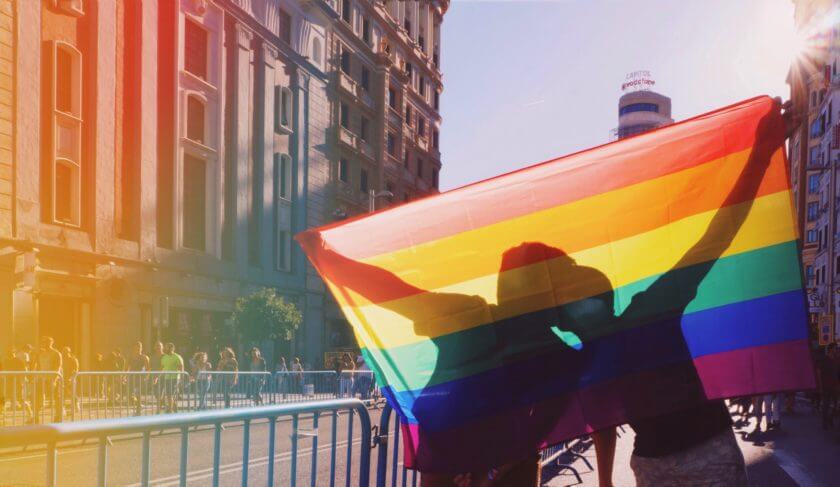
Only 1 out of 4 LGBTQ+ Americans feel financially prepared. Consider that female same-sex couples earn, on average, $9,643 less than married opposite-sex couples. Yes, you read that right. The wage gap is very real — and one that we need to fix.
This gap means that 34% of trans men, 30% of trans women and 22% of all LGBTQ+ Americans live in poverty. While a third of the general U.S. population feels able to make smart money moves, like saving up in an emergency fund, only a quarter of LGBTQ+ Americans feel the same. So, what can we do to improve this lack of financial independence among this community, and start to repair this general lack of confidence when it comes to finances?
Back It Up
Experts report that 40% of homeless youths identify as LGBTQ+. “It’s hard to see how many of those young people will learn how to make financial decisions,” notes Matt Frankel, CFP, personal finance contributor with The Ascent. Think about it: If you’re not growing up in a financially stable environment, it’s hard to imagine how one will pivot to such stability in their future. Plus, LGBTQ+ Americans tend to gravitate toward big, traditionally more liberal cities, where the cost of living is much higher, even if they can’t afford that lifestyle.
On top of that, LGBTQ+ Americans are almost twice as likely to have a poor or very poor credit score, making it more difficult for them to open credit cards, take out loans, or have a mortgage. This, paired with the fact that LGBTQ+ Americans are more likely to make much less, leads to a life of financial instability. “It’s very difficult to think about your finances when you’re struggling to make rent and put food on the table,” Frankel says.
The LGBTQ+ wage gap is also a very real factor in all of this. Male same-sex couples actually earn more than the typical heterosexual couple, but female same-sex couples earn nearly $10,000 less. “In a nutshell, this is the same wage gap that affects men and women, but doubled,” Frankel notes.
Let’s Fix This
One major reason LGBTQ+ people are less confident when it comes to their finances has to do with emergency funds. On average, they are less likely to have an emergency fund when compared with the general population. Frankel says that any move to improve the number of people with savings accounts would be a step in the right direction.
“One of the smartest moves anyone can make is to learn about the options that exist in today’s market to help save money, consolidate debt, and more. I’d say that financial education is key, and it would be wise to specifically target financial education efforts at the LGBTQ+ community,” Frankel Suggests.
In terms of closing the devastating wage gap, we first have to recognize the problem and “look for ways to address what can only be described as systemic discrimination,” Frankel says. Yes, progress has been made in this area, but there is still a ton of work to do.
Frankel suggests starting young, and engaging LGBTQ+ people in financial literacy and in the same level of education as their LGBTQ+ peers — since LGBTQ+ people are less likely to graduate high school.
Finding Confidence
To feel financially independent and prepared, one has to feel confident in their financial situation — and this is true whether you belong to the LGBTQ+ community or not.
Frankel offers up one of our favorite tips here at HerMoney to do just that — make savings automatic, and don’t underestimate the power of small savings contributions. “Setting aside just $20 from every bi-weekly paycheck will result in a $500 emergency fund after a year,” he notes. And that puts anyone in much better shape than about half of all Americans.
Overall, it’s important for all of us to realize that we have a role to play in making our society more equitable, not just in Pride month, but throughout the year. We may not be able to change the system, but we can make our workplaces more tolerant and be aware of the prejudices that exist in our communities, all of which can contribute to financial confidence in the LGBTQ+ community.
MORE ON HERMONEY:
- By the Numbers: Being LGBTQ+ In America,
- 8 Lesbian, Trans & Queer-Owned Brands To Support During Pride Month (And Always!)
- LISTEN: How Companies Are Creating A Supportive Workplace for LGBTQ+ Employees







